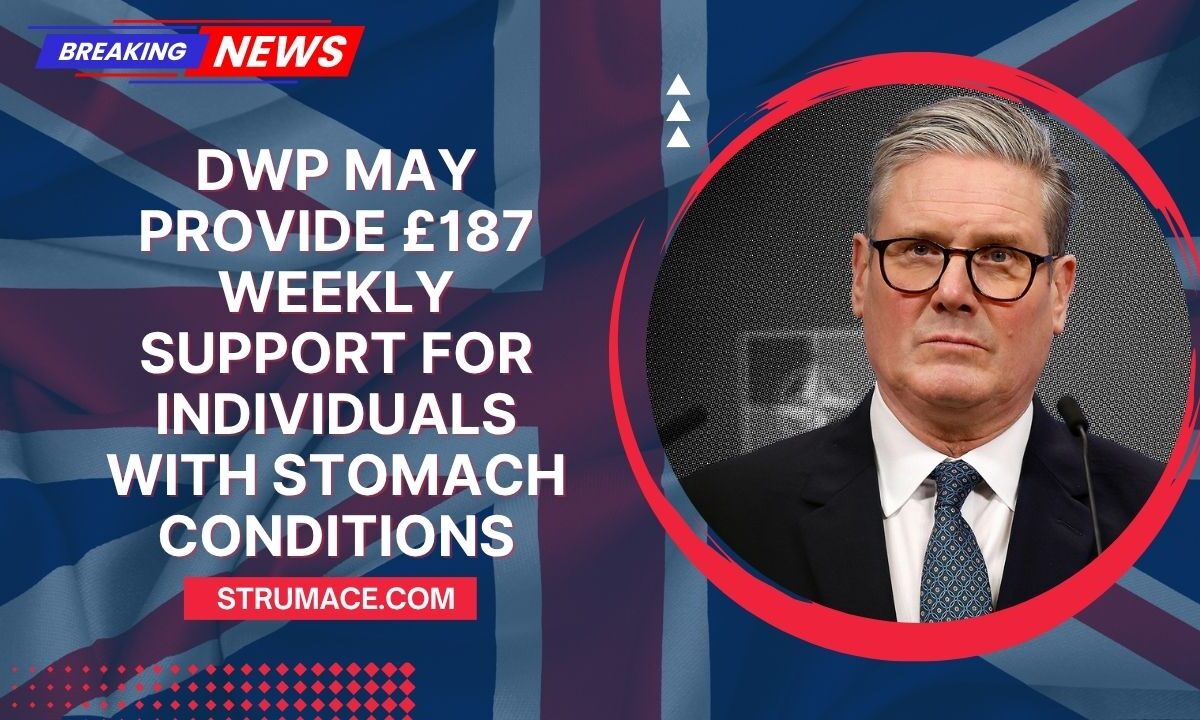Thousands of individuals across Great Britain may qualify for more than £187 per week to help manage Inflammatory Bowel Disease (IBD), Irritable Bowel Syndrome (IBS), and other digestive health conditions—but many remain unaware of this benefit.
This assistance is available through the Personal Independence Payment (PIP), a benefit administered by the Department for Work and Pensions (DWP). PIP is designed to help those living with long-term health issues that significantly affect daily living or mobility.
What Is PIP and Who Can Claim It?
Personal Independence Payment (PIP) provides extra financial help for individuals managing additional costs due to a long-term physical or mental health condition.
Eligibility Criteria
To qualify for PIP, you must:
- Have had difficulty with daily tasks or mobility for at least 3 months
- Expect those difficulties to last at least 9 more months
- Have lived in the UK for 2 of the last 3 years
- Be in the UK when applying
Additionally, if your condition impacts tasks like eating, dressing, bathing, moving around, or managing medication, you could be eligible for support.
PIP Weekly Payment Rates
| Component | Standard Rate | Enhanced Rate |
|---|---|---|
| Daily Living | £73.90 | £110.40 |
| Mobility | £29.20 | £77.05 |
PIP is generally paid every four weeks, except for individuals with terminal illnesses who may receive weekly payments. This means recipients can get between £116.80 and £749.80 per payment cycle.
Conditions That Qualify Under Gastrointestinal Health
As of April, over 36,300 people in the UK receive PIP for gastrointestinal issues. The following 25 conditions may be supported by PIP under either the daily living, mobility, or combined components:
Diseases of the Small Bowel
- Coeliac disease
- Crohn’s disease
- Ulcerative colitis
- Inflammatory bowel disease
- Small bowel disorders (known/unknown types)
Stomach, Esophagus, and Duodenum Disorders
- Hiatus hernia / GERD / reflux
- Oesophageal varices
- Peptic ulcers
- Gastritis
- Other related conditions
Rectal and Anal Conditions
- Haemorrhoids
- Rectal prolapse
- Anorectal abscess
- Anal fistula
- IBS (Irritable Bowel Syndrome)
- Tumours in the gastrointestinal tract
Hernias and Other GI Diseases
- Abdominal hernia
- Stomas (colostomy/ileostomy) without a primary diagnosis
- Other gastrointestinal disorders
Congenital Disorders
- Hirschsprung disease
- Cleft lip / cleft palate
- Tracheo-oesophageal fistula or atresia
Note: The DWP recognizes over 500 different conditions, so even if your specific condition isn’t listed here, you may still be eligible under the “unknown” classification.
How the DWP Assesses You
When evaluating a claim, the DWP examines how your condition affects your ability to perform specific tasks:
- Can you do the activity safely?
- Do you require assistance or equipment?
- How often are you affected?
- How long does the task take?
These factors determine the rate and component(s) of PIP you’ll be awarded.
How to Apply for PIP
To begin your claim:
- Visit the GOV.UK website or contact the DWP directly.
- Have the following information ready:
- Your healthcare provider’s details
- Dates of hospital stays or time abroad
- Bank or building society information
- Your contact details and National Insurance number
- Your date of birth
Applications are reviewed thoroughly and may include a medical assessment to verify the level of need.
If you’re coping with a long-term gastrointestinal condition, applying for Personal Independence Payment can offer essential financial support—up to £187.45 weekly.
With over 36,000 current recipients already receiving help for similar issues, many more may qualify but haven’t yet applied.
Whether you live with IBS, Crohn’s disease, a hernia, or another digestive disorder, you shouldn’t miss out on the financial relief you may be entitled to.
FAQs
Can I still apply for PIP if my condition isn’t listed?
Yes. The DWP accepts over 500 health conditions, and even if your condition isn’t on the main list, you may still qualify under a general or unknown category.
Is PIP affected by my income or savings?
No. PIP is a non-means-tested benefit, meaning your income, savings, or employment status won’t impact your eligibility.
How long does the PIP application process take?
It can take several weeks to a few months depending on documentation, assessment scheduling, and processing time. Be sure to provide complete and accurate information to avoid delays.
